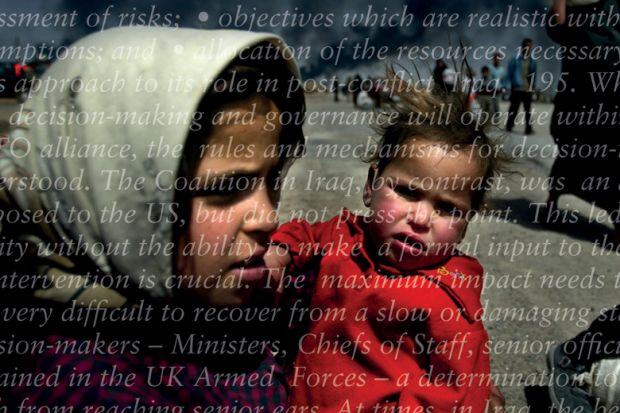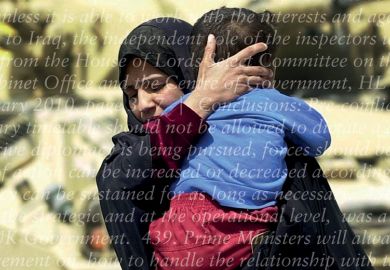As the political casualties of the Brexit vote mounted up in Westminster, down the road in Admiralty House Tony Blair looked like death warmed up as he responded to the long-awaited Chilcot report.
The conclusions of the inquiry into the Iraq War, and Blair’s argument about how much worse things might have been had he taken another course, led the news for a day at least.
But that’s a long time in politics this summer, and the Tory and Labour leadership battles, unfolding in stupendously vicious fashion, soon superseded Chilcot’s exhaustive dissection of decisions taken more than a decade ago.
The timing of its publication was far from ideal, but ultimately the report wasn’t written for journalists, who were always likely to cherry-pick a few Blair-related angles and move swiftly on.
So who was it written for? This is the question posed in our cover story this week by Glen Rangwala, lecturer in Middle Eastern politics at the University of Cambridge. In 2003, Rangwala played his own part in the saga, exposing the plagiarism in what became known as the “dodgy dossier”, which was used by the UK government to make the case for war.
In this week’s Times Higher Education, he argues that Sir John Chilcot and his colleagues have produced a report that, unusually, is “not principally…an account of failings, and not significantly a set of recommendations for institutional change”. Rather, it is a “critically focused academic analysis” of an approach to foreign policy, and as such “has resonance beyond its own immediate moment”.
But does resonance translate into relevance for future policymaking?
In his response to Chilcot, Blair bemoaned the lack of clear recommendations about how Britain could better handle the relationship with allies such as the US. On BBC Radio 4, he said: “The only [area] where I think the report is quite weak is: what are the actual lessons we really want to learn about what type of commitment are we prepared as a country to make in the future?”
For Rangwala, the central failure of those involved in orchestrating the UK’s role in the Iraq War was their collective failure to ask why it was in the UK’s interest to pursue influence over American policy, apparently at all costs. But that has not been widely picked up. And if the report is primarily “a set of intellectual arguments”, rather than a retrospective blueprint, we might well ask whether politicians – most of whom are currently dancing a wild jig to a populist tune – will be willing or able to engage with this big picture approach. The same goes for hard-pressed, silo-bound civil servants.
Then there is the issue of the report’s enormous length. It is doubtful that many will get beyond the executive summary (itself more than 100 pages). In Rangwala’s view, the report is “most oriented towards…the individual of a scholarly disposition with the opportunity and inclination to read 2.6 million words undisturbed and to formulate big ideas about foreign policy on their basis”. But he questions whether such people still exist.
Even academia itself seems to have turned against such leisured big thinking. Indeed, if he had been an academic, then having spent seven years on one project, Sir John would quite possibly be facing the sack come the next research excellence framework.
Register to continue
Why register?
- Registration is free and only takes a moment
- Once registered, you can read 3 articles a month
- Sign up for our newsletter
Subscribe
Or subscribe for unlimited access to:
- Unlimited access to news, views, insights & reviews
- Digital editions
- Digital access to THE’s university and college rankings analysis
Already registered or a current subscriber?

